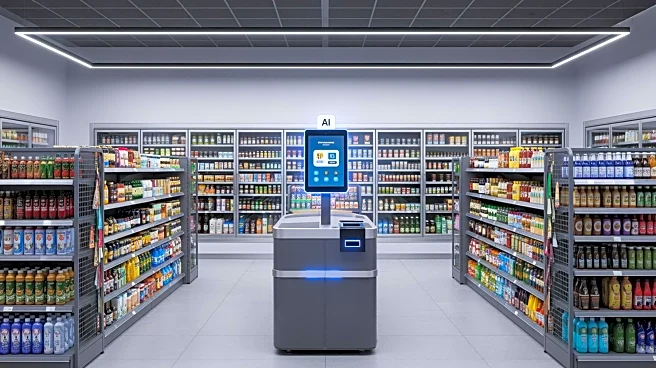What's Happening?
At the recent C-StoreTEC event in Plano, Texas, leaders from various convenience store chains shared insights on how they are integrating artificial intelligence (AI) into their operations. Chris Edwards from Circle K, Jesse Wolcott from Royal Farms,
and Scott Smith from Parker's Kitchen discussed their approaches to AI adoption. Wolcott highlighted the use of productivity tools like Fyxer.ai and Perplexity to enhance corporate efficiency. Smith emphasized a hybrid approach at Parker's Kitchen, balancing in-house development with external partnerships to innovate quickly. Edwards noted the challenges of scaling AI solutions globally, particularly in terms of regulatory compliance and cost management.
Why It's Important?
The integration of AI in convenience stores represents a significant shift in retail operations, promising increased efficiency and innovation. By leveraging AI, these stores can streamline processes, improve customer service, and enhance decision-making. The discussion underscores the importance of balancing internal development with external partnerships to maximize AI's potential. As AI becomes more prevalent, convenience stores that effectively implement these technologies may gain a competitive edge, potentially reshaping the retail landscape. The focus on regulatory compliance and ethical considerations highlights the complexities involved in global AI deployment.
What's Next?
Convenience stores are likely to continue exploring AI solutions to enhance their operations. Future steps may involve expanding AI applications beyond productivity tools to areas like inventory management and customer interaction. As AI technology evolves, stores will need to address challenges related to data privacy and regulatory compliance, particularly when operating across different regions. Collaboration with academic institutions and tech partners may play a crucial role in advancing AI capabilities while ensuring ethical standards are met.
Beyond the Headlines
The adoption of AI in convenience stores could lead to broader implications for the retail industry, including shifts in employment patterns and the need for new skill sets among workers. As AI tools become more integrated, there may be ethical considerations regarding data usage and transparency. The move towards AI-driven operations could also influence consumer expectations, driving demand for more personalized and efficient shopping experiences.
















